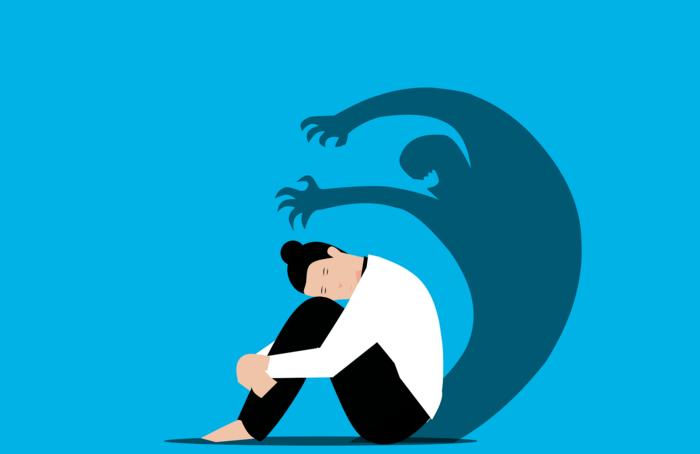
A new study highlights the relationship between individual cognition and mental health, revealing that confidence in decision-making may serve as a critical link between anxiety, depression, and compulsive behaviors. The research, stemming from prominent institutions in Germany and the United Kingdom, underscores the necessity of understanding metacognitive processes in individuals experiencing mental health challenges. This groundbreaking exploration into cognition could reshape how clinicians approach mental health therapies and interventions.
The investigators focused on two main cognitive domains: memory and perception. They discovered that individuals exhibiting symptoms of anxiety and depression often have diminished confidence in their judgments regarding decisions influenced by these cognitive domains. This variable, confidence, plays an intriguing role in how mental health conditions express themselves. By examining the fluctuations in confidence levels associated with self-judgment, the study lays a theoretical foundation for linking neuropsychological factors to the broader context of mental well-being.
Compulsivity emerged as a contrasting psychological construct in the findings. Those who demonstrate compulsive behaviors paradoxically display higher confidence in their decision-making processes, contributing to a further understanding of the cognitive underpinnings of these behaviors. The interrelation between low confidence in judgement and high compulsivity paints a picture of cognitive disparity, potentially offering new avenues for therapeutic intervention. Clinicians may use this information to devise strategies aimed at recalibrating individual perceptions of confidence, ultimately improving decision-making capabilities in patients.
As previous studies have hinted, anxiety and depression significantly alter cognitive functioning. However, the nuanced focus on confidence offers a fresh perspective. The implications of such insights could extend beyond individual diagnosis, influencing public health strategies concerning mental health awareness and education. By fostering an understanding of how cognitive biases affect mental health, this study could lead to more empathetic, informed, and effective care.
Metacognition refers to the awareness and understanding of one’s thought processes. The study’s examination of metacognitive biases indicates that individuals struggling with anxiety and depression often exhibit distorted beliefs regarding their cognitive competencies. They may second-guess their decisions or underestimate their abilities, creating a feedback loop of negativity that can exacerbate existing mental health issues. Understanding these cognitive patterns can facilitate the development of psychological techniques aimed at rebuilding self-confidence and correcting cognitive biases.
Moreover, the research could galvanize efforts to integrate cognitive-behavioral therapy (CBT) with cognitive training. CBT effectively addresses behavioral patterns associated with anxiety and depression, and by layering cognitive training, therapists may empower individuals to rebuild their confidence in decision-making. Such dual interventions can deepen emotional resilience while also enhancing cognitive function.
As part of the exploration, the study’s authors meticulously controlled for factors such as age, socioeconomic background, and previous mental health history, ensuring that their findings present a clear correlation rather than mere association. This meticulous framing adds credibility to the claims made regarding cognitive biases and emotional disturbance.
Importantly, the study does acknowledge the limitations in its scope. While it identifies significant correlations, it cannot ascribe direct causality to the observed phenomena. Further research would be necessary to probe deeper into the causal pathways and to ascertain whether modifying confidence directly influences symptoms of anxiety and depression or if changes in these symptoms affect cognitive judgment peripherally. Future studies could enrich the field by employing longitudinal designs to observe these variables over time.
The body of work drastically raises important questions about the cultural narratives surrounding mental health and the stigmatization of those experiencing mental health issues. A greater emphasis on understanding cognitive variances could foster a more nuanced view of mental health, pushing individuals, professionals, and society as a whole to reconsider established perceptions of mental illness.
Mental health challenges can often render individuals vulnerable, and the psychological ramifications of these findings could equip mental health advocates with the tools necessary for effective support. It is crucial that initiatives encourage individuals to cultivate self-awareness regarding their cognitive processes while simultaneously offering education on common metacognitive biases. This way, society collectively moves toward a more empathetic understanding of mental health.
Overall, the research embodies the modern scientific approach—interdisciplinary, comprehensive, and deeply humanistic—invoking a desire for further inquiry. As mental health continues to gain prominence in global health discussions, this study proposes innovative methodologies for understanding and treating complex psychological conditions, ensuring that attention remains on the individual’s lived experience.
In summation, the study elucidates the intricate relationship between cognition and emotional well-being, suggesting that enhancing an individual’s confidence in their decision-making might bridge the gap between metacognitive biases and mental health manifestations. Such knowledge could guide future research, clinical practices, and societal attitudes towards mental health, illuminating a pathway towards a more enlightened perspective on human cognition and its multifaceted relationships with mental states.
—
Subject of Research: Metacognitive biases in anxiety-depression and compulsivity
Article Title: Metacognitive biases in anxiety-depression and compulsivity extend across perception and memory
News Publication Date: [Date not specified in provided content]
Web References: [Links not specified in provided content]
References: [References not specified in provided content]
Image Credits: Mohammed Hassan
Keywords: Metacognition, Anxiety, Depression, Compulsivity, Cognitive Biases, Mental Health, Cognitive-Behavioral Therapy
Tags: cognitive disparity in mental healthcognitive domains of memory and perceptioncompulsive behaviors and confidence levelsdecision-making confidence and mental healthfluctuations in self-judgment confidenceimpact of confidence on depressionimplications for mental health interventionsmetacognitive processes in mental healthneuropsychological factors in mental well-beingrelationship between cognition and anxietytherapeutic approaches for anxiety and depressionunderstanding decision-making in psychological disorders





